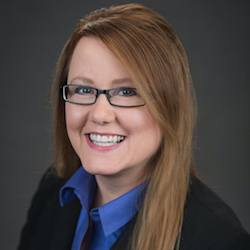
Independent and assisted living communities may offer residents a benefit their community-dwelling peers don’t have: peace of mind about the future.
That benefit may seem obvious. After all, older adults move into senior living communities to get help with activities of daily living or make their lives easier in some other way. But the a recent survey makes the benefit even more obvious.
Because a transition into senior living often is preceded by a decline or anticipated decline in health, residents may confront legal issues such as advance healthcare directives, power of attorney and healthcare power of attorney before move-in, even if not required to by law.
The 2018 Wells Fargo Elder Needs Survey, however, found that 57% of older adults in general (aged 60 or more) describe conversations about such matters as a low priority, and one-third overall said they never have discussed them with family members. Further, 32% of adult children (aged 45 to 59) said such discussions were a low priority, and 23% said having them would cause a conflict.
The good news is, 74% of older adults said they have a written will. A smaller percentage, 60%, have an advance healthcare directive; a slightly smaller percentage, 59%, have a power of attorney for healthcare; and 48% have a power of attorney for financial matters. But even then, one in six report that their documents are out of date.
“Some older adults may struggle to see the need to plan for issues they may face as a result of aging,” Ron Long, head of regulatory affairs and elder client initiatives at Wells Fargo Advisors, said in a statement. “They spend a lifetime preparing for retirement, but then fail to plan to see themselves through retirement.”
Not surprisingly, the survey found that older Americans who have talked with their families about later-life needs and have estate and planning documents in place are happier than those who have not. There’s that peace of mind.
“While planning for old age isn’t a topic individuals particularly enjoy, it often provides greater confidence and comfort in knowing that they’ve prepared for potential later-life needs,” Long said. “That confidence translates into greater happiness because it’s one less thing they, or their children, need to worry about.”
So how do older adults and, by extension, their adult children get to that point of happiness? Two obvious places to start, Wells Fargo said, are encouraging them to update or create legal documents such as wills, an advance healthcare directive and powers of attorney for financial matters and for healthcare and to talk with trustworthy family members about financial plans.
If the older adult is still managing his or her own finances, then it’s critical to do things such as sign up for direct deposit, annual credit report checks and automatic bill pay, Wells Fargo said. Also, to protect against fraud, the older adults should keep checks and credit cards locked up, and name a trustworthy individual to receive automatic alerts of large transactions.
Something else on Wells Fargo’s list to-do list for older adults, to make them less vulnerable: Avoid isolation through social activities. What what do you know — it’s another benefit of senior living.
The survey, conducted by Versta Research on behalf of Wells Fargo, represents a national sample of 784 older Americans and a similar survey of 798 adult children who communicate with a parent regularly. It was conducted between Feb. 26 and March 15.
Lois A. Bowers is senior editor of McKnight’s Senior Living. Follow her on Twitter at @Lois_Bowers. Email her at [email protected].



